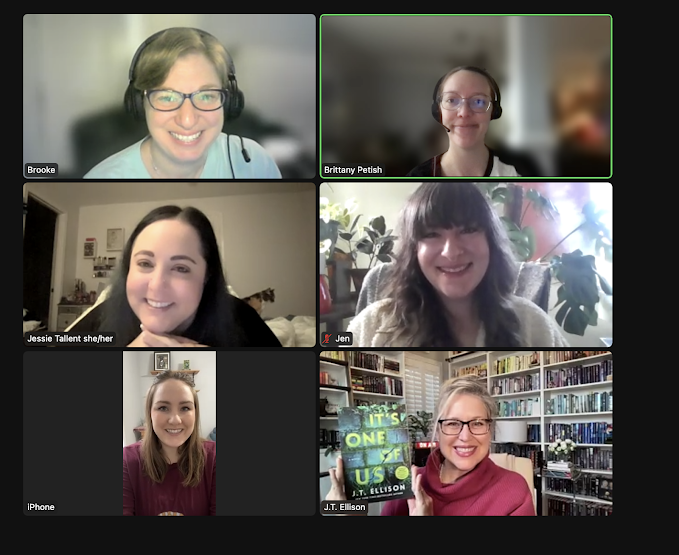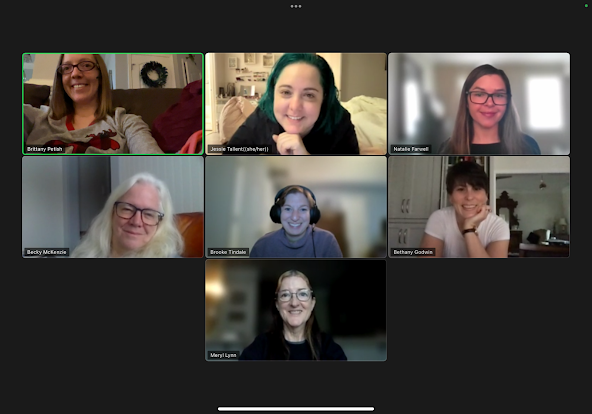Q&A with Sarah Vaughan, author of Reputation
Sarah Vaughan read English at Oxford and went on to become a journalist. After training at the Press Association, she spent eleven years at the Guardian as a news reporter and political correspondent before leaving to freelance and write fiction. Her first two novels, The Art of Baking Blind and The Farm at the Edge of the World, were followed by her first psychological thriller, Anatomy of a Scandal: a Sunday Times bestseller, and Richard & Judy pick of the decade, developed as a Netflix series starring Rupert Friend, Michelle Dockery and Sienna Miller. Her fourth novel, Little Disasters, a Waterstone’s thriller of the month, was published in 2020. Reputation is her fifth novel.
Today, Sarah Vaughan is on the blog to answer a few of our questions about her latest novel. Read on …
Please tell us about your book, Reputation!
SV: Reputation’s a political thriller/courtroom drama about a Labour MP who stands trial for murder after a tabloid journalist with whom she’s collaborated on stories, and become entangled, is found dead in her house. It’s about the pressures faced by women in public life, and by teenage girls – and features themes of harassment, online abuse, revenge porn and political entitlement.
Where did the inspiration for this story come from?
SV: The lightbulb moment was reading an interview with a female MP who had nine locks on her front door because the abuse she was experiencing. At the same time, another female MP, who’d been vocal in opposing Brexit, spoke about her mother receiving obscene letters, and my own MP had someone posting pictures of her house on Facebook, complete with scaffolding (it was being decorated) and with the comment that he’d bought some rope. I wondered what it would be like to feel under attack like this – through social media, from constituents, and even through texts or letters sent through the post. I would see danger everywhere and it might cloud my judgment: who needs a gaslighting husband – a trope of many domestic thrillers – if there is sustained jeopardy all around.
This is a novel that explores the dark side of social media for women. As a writer, what interests you the most about social media when it comes to writing page-turning thrillers?
SV: I’ve found social media hugely useful in reaching out to contacts and in communicating with other authors. But there’s no doubt that it can be hugely problematic, and I use it in Reputation to generate tension and introduce threats. The anonymity of trolls means the abuse can be particularly vicious, unrelenting, and cumulative. I hope I’ve introduced a flavour of this, at the start of some chapters, without deterring the reader. It’s a tricky balance. The tweets are necessarily shocking to to jolt the reader out of the security of reading the book; to intrude on and disconcert them, in the same way any abusive tweet or text would perturb Emma.
Your protagonist is Emma Webster: respectable MP, devoted mother, and possible murderer. What was your favourite thing about bringing her to life on the page?
SV: Reputation complements Anatomy of a Scandal and Little Disasters because it takes a professional woman – here a politician, rather than a barrister or a paediatrician – throws a dilemma at her and forces her to make decisions.
As with both my previous thrillers, I loved exploring this professional world and creating a woman who wasn’t, as so many women in psychological thrillers are, confined to the home. I also loved placing her in beautiful settings that become threatening (if that doesn’t sound too cruel!) So, the Georgian home she rents isn’t the safe place she believed it to be; the Chamber of the House of Commons becomes both a forum in which she can find her voice, and a place where she is eyed up by MPs sitting on benches opposite; and even Smithfield meat market reminds her of something sinister.
That’s not to detract from her role as a mother: my kids were 11 and 14 when I started writing this, and although my daughter is thankfully nothing like Flora, the scenes in which Emma “mothers” came very naturally. (Although I hope I’m a better parent than her.) But the challenge for me was getting inside the head of a woman prepared to put her head above the parapet, despite knowing the reaction will be vicious, and then dealing with the outcome.
‘It takes a professional woman – here a politician, rather than a barrister or a paediatrician – throws a dilemma at her and forces her to make decisions.’
The Netflix adaptation of your novel Anatomy of a Scandal, starring Sienna Miller and Michelle Dockery, is set to be released soon. How does it feel to see something you’ve created be adapted for the screen?
SV: It’s the most exciting thing that’s happened to me professionally and it still feels completely surreal. Despite having seen rough cuts of all six episodes, I’m not going to believe it’s really happening until the day it drops on Netflix. Watching it was such a visceral experience: I felt intensely proud and so moved that Michelle (Kate) made me cry. It’s hard to explain but the actors – Sienna Miller, Michelle Dockery, Rupert Friend and Josette Simon, in particular, but also the younger actors, are now those characters for me. They filmed from November 2020 through to mid-April, so through a very difficult period of the pandemic when the Delta variant emerged, and we were in lockdown. Knowing that it was still being produced, that hundreds of people were working to create something special, on location and at Shepperton, despite all the necessary Covid restrictions, was so affirming and a real lift during those home-schooling days!
Can you tell us a little bit about your journey towards becoming a writer?
SV: I wrote as a child, then stopped in my teens as exams took over. I read English at Oxford and knew I wanted to write for my career but the idea of being an author didn’t occur to me: you didn’t have to read anything after 1832 on my course (though I did a paper on the novel), and as far as I was concerned, novels were written by dead, white men. I had been features editor on the uni paper, though, and so, after building up my CV with work experience subsidised by wiping tables/temping, I did a regional journalism course and then became a trainee news reporter with the Press Association. After 20 months, I did a secondment with the Guardian and then got a staff job. I worked there, as news reporter, political correspondent and health correspondent for 11 years. I left after my second baby; tried to freelance – and hated it; and started writing fiction. On my 40th birthday, I announced that I was going to write a novel, The Art of Baking Blind, which I sold in a preempt 13 months later. With a sixth novel underway, my forties have been the decade in which I’ve finally become an author!
What is the best piece of writing advice you have ever received?
SV: Write the novel you’re burning to write. I wrote Anatomy of a Scandal out of contract, not knowing if anyone would want to publish it, but having wanted to start it for two years. Having said that, do read in your genre and outside it: there’s no point writing something for which there’s no market. But if you sense yours is a story that no one else has told and that you have to unleash, go for it!
What is the last book you read and loved?
SV: Probably Apples Never Fall by Australia’s own Liane Moriarty. She just makes it look effortless: you completely believe in her characters. I also keep thinking about Unsettled Ground, written by my writer friend Claire Fuller, which has just won the Costa novel prize. She’s been described as a modern du Maurier, and this suspenseful, nuanced and poignant exploration of rural poverty and life lived at the fringes of society is one I can’t shake from me.
What do you hope readers will discover in Reputation?
SV: Good question! I hope readers will discover fully fleshed-out characters they root for, even if they don’t like every aspect of them; a plot that makes them want to read into the night; court scenes that make them judge and reassess; and timely themes – about misogyny and power –that make them think. Although I think the first duty of a novel is to distract and entertain, I also want to provoke readers, and to make them ask: how would I behave?
And finally, what’s up next for you?
SV: I’m writing my sixth novel – and fourth psychological thriller/crime-based novel – but am reluctant to say any more, at the moment, for fear of jinxing it. I can say, though, that it’s centred on another powerful, charismatic woman, and that there’s a murder.
Thanks Sarah!





Comments
Post a Comment
Drop us a line and let us know what you thought about the book...